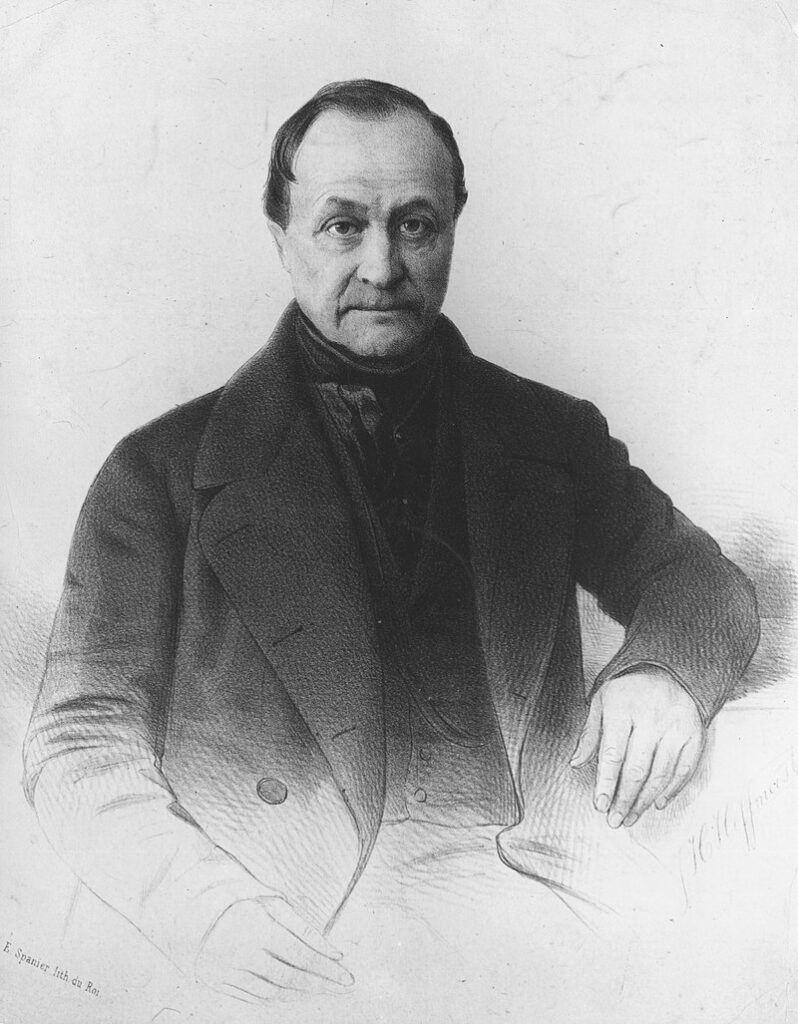Altruism

Credit: Johan Hendrik Hoffmeister - http://augustecomte.org/musee/portraits-dauguste-comte/
| Giver: | Individual |
|---|---|
| Receiver: | Formal/Structured unregistered organizations, Individual or unstructured/informal group, Other |
| Gift: | - |
| Approach: | Other |
| Issues: | 1. No Poverty, 10. Reduced Inequalities, 16. Peace, Justice and Strong Institutions, 2. Zero Hunger, 3. Good Health and Well-Being, 4. Quality Education, 8. Decent Work and Economic Growth |
| Included in: | a Philosophy of Giving |
Altruism refers to the unselfish concern for the welfare of others. Derived from the Italian alteri (“other people’s”), the term was first coined by French mathematician and thinker Auguste Comte (1798-1857), founder of the philosophical school known as positivism. Rooted in Comte’s belief that morality could be understood in scientific terms, positivism introduced an empirical approach to the study of ethical behavior, while launching the modern academic discipline of sociology. In Comte’s positivist system, altruism represents a rational approach to generosity; its purpose is to create a harmonious, mutually beneficial society based on principles of equality, justice and solidarity.
Comte first introduced the concept of altruism in his Système de politique positive (System of Positive Polity; 1851-54). In this landmark study, the philosopher proposes to develop a science of social structures based on the thorough analysis of human behavior. According to Comte, human beings are inherently social, with an innate capacity to cooperate. By cultivating their altruistic tendencies, he asserts, humanity can channel this fundamental generosity toward the greater good.
Comte contrasts this altruistic instinct with human egoism. Because it prioritizes limited, individual gains over broader benefits for humanity in general, egoism poses a critical challenge to achieving social harmony and general prosperity. In order to overcome this obstacle, Comte suggests, human beings must train their minds so that their altruistic traits become dominant. In other words, individuals must view themselves as servants of humanity – each focused on acting morally on behalf of others – rather than maintaining what Comte views as a parasitical, self-interested relationship to the collective.
The emergence of altruism as a factor in the shaping of social structures represents, for Comte, a critical stage in human intellectual history. In Système de politique positive, Comte identifies three distinct phases of human culture. In the theological phase, human existence is believed to to derive from divine causes, which ultimately determine moral behavior. In the second, metaphysical stage, humanity conceives of abstract concepts to explain phenomena, using these ideas to create a legal and ethical framework for their actions. In the third, positivist stage, human beings gain a deeper understanding of experience through rigorous scientific study, allowing them to make informed choices to build a just and equitable society based on reason.
In Comte’s worldview, individuals have a fundamental duty to act on behalf of humanity as a whole. Indeed, the positivist philosopher regarded the fulfillment of this obligation as a prerequisite for realizing one’s full potential as a human being. Small acts of altruism from assorted individuals are ultimately insufficient – rather, the advance of human civilization relies on the triumph of altruism over egoism within all human beings. Comte regarded the pursuit of a world founded on altruistic principles as a “Religion of Humanity.”
By developing a conception of generosity rooted in knowledge and reason, Comte created a self-consciously modern framework for a systematic, empirical approach to philanthropic activity. At the same time, Comte’s altruistic ideal presents a new standard for society, challenging individuals to pursue meaningful lives on behalf of their fellow human beings.
Contributor: Stephen Meyer
| Source type | Full citation | Link (DOI or URL) |
|---|---|---|
| Publication |
Laffey, John F. “Auguste Comte: Prophet of Reconciliation and Reaction.” Science & Society 29, no. 1 (Winter 1965): 44-65. |
https://www.jstor.org/stable/40401094 |
| Publication |
Sonenscher, Michael. “Positive Thinking: Social Science, Sociology and the Intellectual Legacy of Auguste Comte.” Modern Intellectual History 19, no. 3 (September 2022): 947-57. |
https://doi.org/10.1017/S1479244321000226 |
| Publication |
Steiner, Philippe. “Altruism, Sociology and the History of Economic Thought.” European Journal of the History of Economic Thought 26, no. 6 (2019): 1252-74. |
https://doi.org/10.1080/09672567.2019.1670226 |
| Publication |
Weinstein, Jay. “Giving Altruism Its Due: A Possible World or Possibly No World at All.” Journal of Applied Social Science 2, no. 2 (Fall 2008): 39-53. |
https://www.jstor.org/stable/23548743 |
| Publication |
Wilson, Mabel V. “Auguste Comte’s Conception of Humanity.” International Journal of Ethics 38, no. 1 (October 1927): 88-102. |
https://www.jstor.org/stable/2378193 |